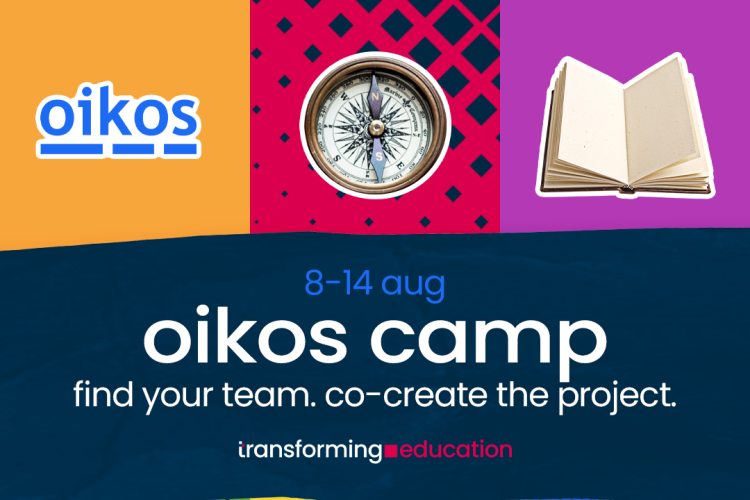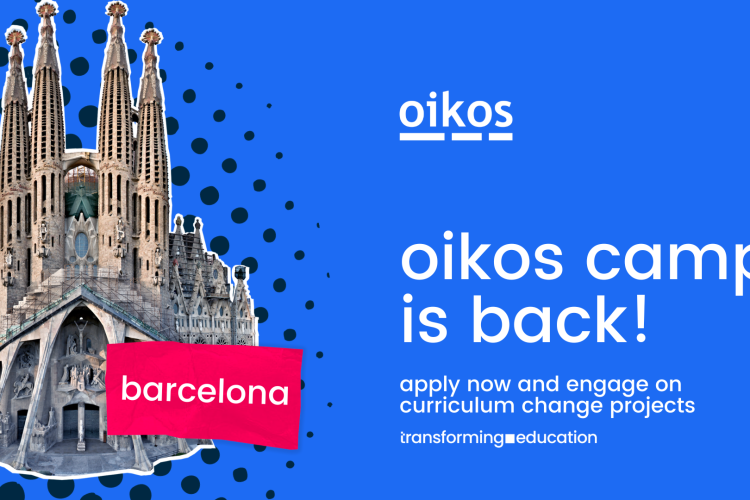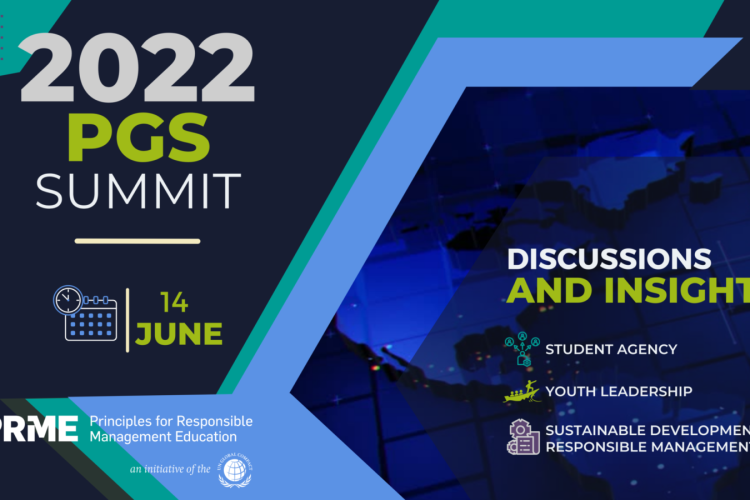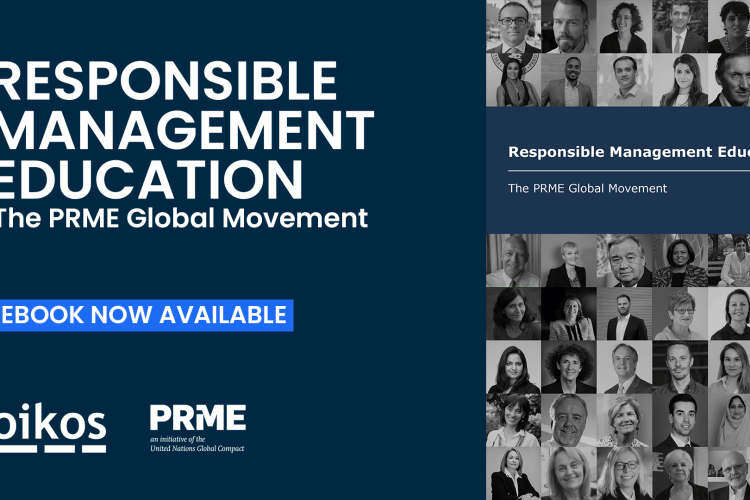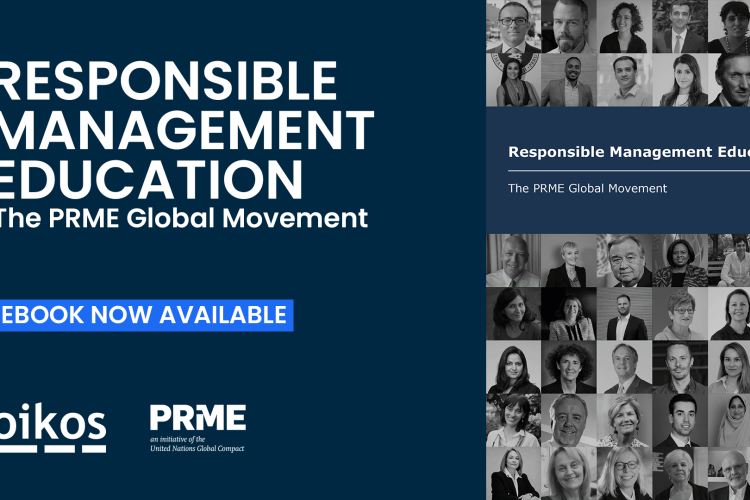The oikos Camp applications are open and run through 8 July! Over the course of the Camp from 8-14 August you can be a part of one of the...
oikos Camp is back – this summer it’s will be moving to sunny Barcelona! The Curriculum Camp is our project withing the Transforming Education initiative which brings together teams...
PRME Global Students (PGS) is a youth-led global network for creative collaboration and collective action that connects, empowers, and creates value for 300+ sustainability-oriented student organizations worldwide. On 14 June 2022,...
Principles for Responsible Management Education (PRME) recently published Responsible Management Education – a book focusing on advancing sustainable development into education, research and partnerships at higher education institutions and,...
Abstract Written by many of the key influencers at the Principles for Responsible Management Education (PRME), the book focuses on advancing sustainable development into education, research and partnerships at...
Capitalist society faces one of its greatest challenges in the beginning of the millennium: How can sustainable social, economic and environmental development be reconciled with capitalist drivers of efficiency...
This PhD thesis examines the connections between sustainability knowledge management (SKM) and sustainability management tools in small and medium-sized enterprises (SMEs). While previous literature has established that knowledge is...
Value Creation from Sustainability The market environment is fundamentally changing in the face of immense global environmental and social challenges, and the need for sustainable business practices represents...
At the example of Daimler Trucks, this thesis aims at raising awareness for highly possible changes in the business environment of every major company that uses sophisticated logistic networks...
In this research we evaluate the environmental economic impact of shipping from the perspective of CO2 emissions by implementing Marine Emission Trading Scheme (METS), as defined. This trading scheme...


